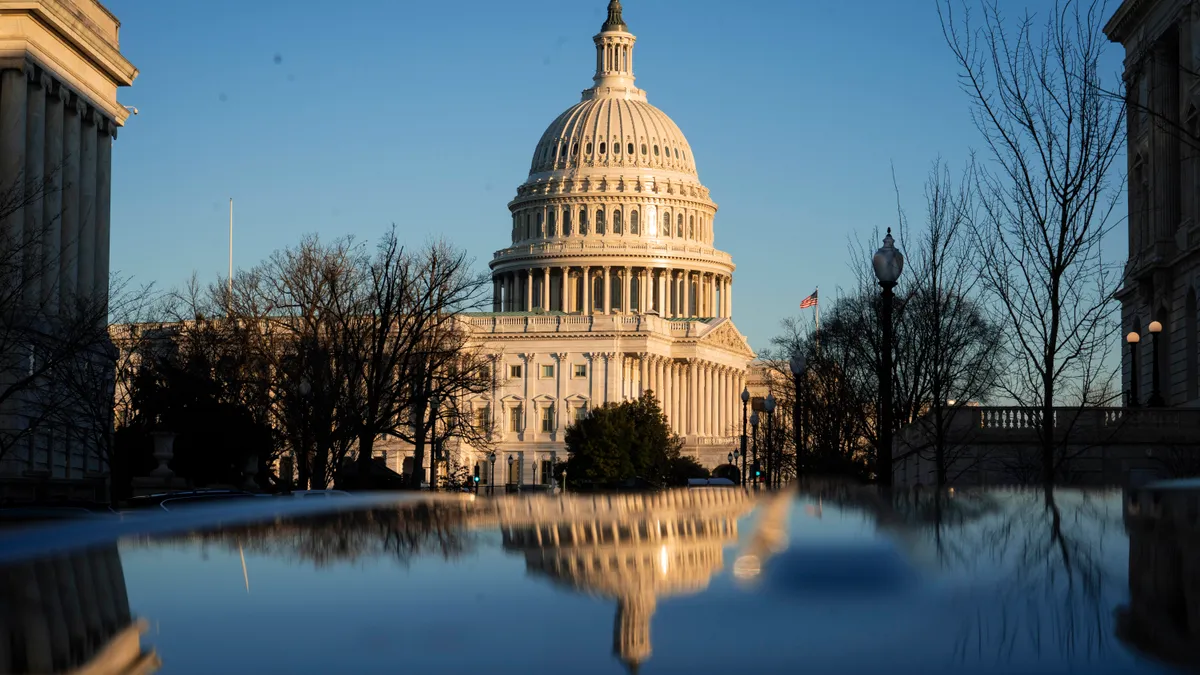Dive Brief:
- The U.S. Conference of Mayors (USCM), the National Urban League and other city leaders gathered for a virtual event Friday, urging Congress to pass the $1 trillion bipartisan infrastructure bill. The House is expected to vote on the bill this Thursday.
- Bloomberg Philanthropies and the USCM also released a tool last week to help mayors access and navigate billions of federal recovery dollars that have been made available in response to the COVID-19 pandemic.
- The new COVID Federal Assistance e311 program is a free, searchable website to help city leaders understand the many rules and regulations that govern the use of federal relief funds, including those from the American Rescue Plan. The tool is already providing expert guidance on using those funds for vaccination efforts, under-invested households and broadband expansion, the groups say.
Dive Insight:
Earlier this summer, a bipartisan group of 369 mayors sent a letter to congressional leaders in support of the framework for the bipartisan infrastructure legislation. The Senate approved the $1 trillion bipartisan infrastructure bill in August, setting up potential new opportunities for smart city and related infrastructure investments.
"No one knows the infrastructure needs of this country better than the local leaders on the ground every day in our communities," said National League of Cities President and Lexington, South Carolina, Council Member Kathy Maness. "We also know that for many places in our country, these critical projects are beyond what local governments can handle on their own budget and authority."
The current infrastructure deal with the Build Back Better Agenda would create about 2 million jobs annually on average over 10 years, according to the White House. "The bottom line is that it has always been an infrastructure package — and a jobs package," Maness said.
Leaders need to ensure that Black businesses will get their fair share of the opportunities stemming from the infrastructure bill, according to Ron Busby, president and CEO of the U.S. Black Chambers (USBC), which he said represents about 150 Black chambers across 42 states and over 385,000 Black-owned businesses. About 41% of all Black-owned businesses shut down from February to April 2020, with many of those businesses not able to reopen.
Part of that effort will include disseminating information about available funds. The majority of the Black-owned businesses that closed last year said it was due to a lack of information about how to access available resources and grant opportunities, according to Busby. To help ensure that information about how to take advantage of available programming reaches Black individuals and neighborhoods, Busby said, the USBC is teaming up with the National Association of Black Owned Broadcasters, which represents Black-owned radio stations and TV stations.
The USCM and Bloomberg Philanthropies' COVID Federal Assistance e311 tool is another method to disseminate information to local leaders about the influx of federal dollars and how to maximize those resources.
The program provides access to experts from "leading emergency management firms" in the U.S. to help answer city leaders' questions and to speed up the flow of resources, according to the official announcement.
In a statement, Lincoln, Nebraska, Mayor Gaylor Baird said the e311 program was helping Lincoln "navigate the complicated rules governing procurement and workforce development projects," with the result that "our service to small businesses and workers has moved forward more quickly and effectively."
Site users can ask questions of the experts or see the responses to questions others have asked. "Cities are under enormous pressure to allocate federal funds quickly and to alleviate suffering in their communities. By sharing actionable guidance one city receives with all cities, this program is helping all cities recover more quickly," according to the statement.
The program also plans to host workshops on calculating revenue loss, complying with complex federal requirements and other challenging issues.












